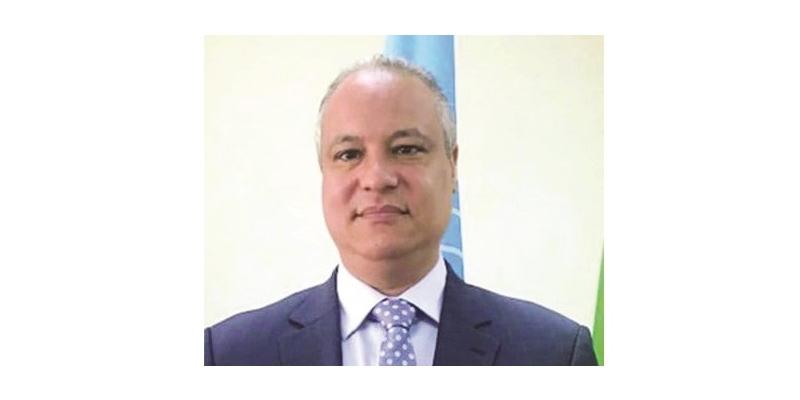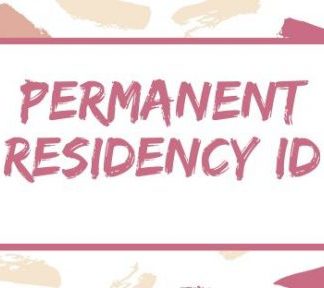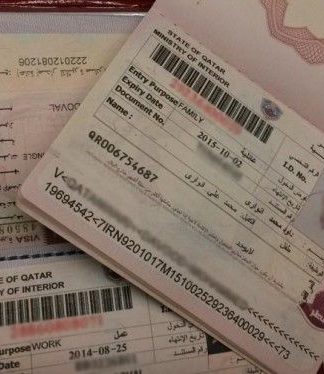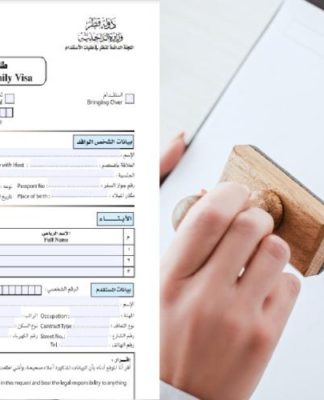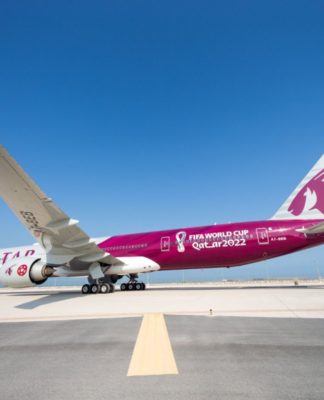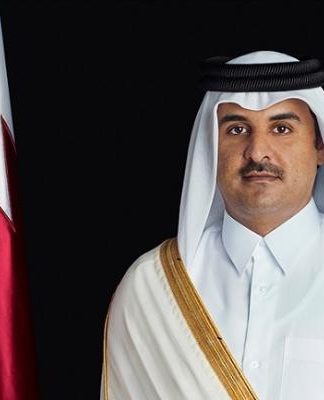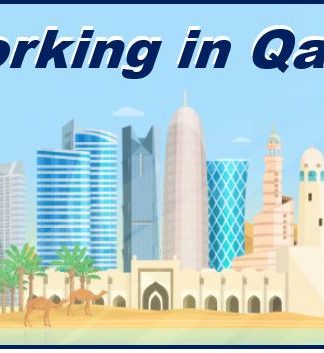Khaled Khalifa, representative of the United Nations High Commissioner for Refugees
His Excellency Mr. Khaled Khalifa, representative of the United Nations High Commissioner for Refugees, praised the support of the State of Qatar to the United Nations High Commissioner for Refugees, and praised in a dialogue with the East, Qatar’s support for the charity, which amounted to $ 47 million, pointing to the recent agreement concluded with Qatar Charity, which granted the agency two million dollars It was allocated to Yemen, and he praised the existing partnership between the Commission and the Education Foundation above all, stressing that it is helping the Commission to work in more than 13 countries, and praised in this context the initiatives of Her Highness Sheikha Moza Bint Nasser, stressing that it aims at more than education, including certification and defense On the rights of children in international forums … The following is the text of the dialogue.
القريب Yesterday, an agreement was concluded between the Qatar Charity and the Office of the Commission, and we would like you to give us a summary of the agreement and its location in the path of cooperation between Qatar and the United Nations?
► The State of Qatar is one of the largest donors and supporters of UNHCR programs, and it is considered the largest donor to the UNHCR’s general budget from among the Gulf states, and in the State of Qatar there are many large NGOs that we cooperate with in various projects around the world, in addition to our coordination With the government through the Ministry of Foreign Affairs and the Qatar Development Fund, and last week we signed a new cooperation agreement with Qatar Charity worth $ 2 million to help those affected by the Corona virus in Yemen who greatly affect their lives and livelihoods, and the project has a different aspect to the projects that we undertake It is to help the poor bury their dead, as half a million dollars has been allocated for this goal. With this agreement, Qatar’s charitable contributions over the past ten years have reached 47 million dollars to support UNHCR programs.
Generous contributions
What programs have these contributions been made into within these countries?
الز The Zakat Fund for Refugees assists thousands of the most vulnerable families in obtaining cash assistance, a means that preserves the dignity of the needy refugees and displaced persons, as it gives him the opportunity to choose spending according to his priorities of food needs, medicine or educational expenses, and contributes to stimulating the local economy. The full assistance provided reached 100% in the form of direct cash assistance without deduction of any administrative expenses, as the Commission covered all administrative expenses, some of which are very high, especially in Yemen, in order to preserve the Zakat funds that we direct completely to the needy and cover all additional expenses from our side. How many countries benefit from Qatar’s support for United Nations programs?
ذلك It is difficult to count this, as there are various international institutions, but, through UNHCR, most of the country assistance that we received was to support the humanitarian response to the Syrian crisis inside Syria and in the five neighboring countries, in addition to supporting the humanitarian response in Yemen and some African countries such as Somalia and the Sahel countries, and in Asia to support and support Rohingya refugees.
130 countries
◄ What is the size of the annual humanitarian response through Qatar’s support for the UNHCR budget?
قطر Qatar supports UNHCR programs without allocation. We receive an annual contribution of $ 8 million in support of the UNHCR general budget operating in 130 countries. Accordingly, the State of Qatar is cooperating with UNHCR in 130 countries and through 400 field offices around the world.
◄ Is the Gulf office concerned only with the situations in Yemen and Iraq, or does it extend to other countries?
دور The role of the Gulf office is concerned with cooperation with the Gulf states and any relationship that connects the Gulf countries with any other country, so the office will have global coverage according to the programs that are implemented.
◄ What about the prospects for future cooperation with Qatar?
► They are broad and promising horizons. There is long cooperation with the Commission through the government and through non-governmental institutions, and we have mentioned “Qatar Charity”. We also still have great cooperation with the Education Above All Foundation in a large number of countries to educate refugee children. We entered the second stage of the project, and an agreement was signed last week to renew cooperation with the Foundation, and programs of cooperation are being implemented with Silatech Foundation in Somalia and other countries, and all indications are that this cooperation will continue in the future, God willing.
◄ You mentioned that there is cooperation with the Education Foundation above all and there are generations that have grown up entirely in refugee camps, which means the need for UNHCR for integrated educational institutions .. How important is the initiative of Her Highness Sheikha Moza in this framework?
► This initiative is very important because education saves the life of the person affected by the crisis. A child who loses the opportunity in education almost loses his future and his life, and there are generations that grew up in an asylum situation, grew up, grew up and studied and are in a state of asylum, and some of them unfortunately live in a state of asylum until the death. For example, it has been 40 years since the Afghan crisis, just as the Somali refugees in Kenya have gone for nearly 30 years, and the Syrian crisis is approaching its tenth year. Moreover, 54% of the refugee population we serve are children, and they need an education. From this standpoint, the importance of cooperation with education-related organizations comes, including the Education Above All Foundation and the initiatives undertaken by Her Highness Sheikha Moza because they have goals beyond education itself, including providing certificates and defending children’s rights in international forums, and urging other donors to help to grow up Snowball is more in education. Millions of children have helped us through these initiatives and we will continue in the future, God willing. Please note that we provide services in 12 countries around the world in cooperation with the Education Above All Foundation.
◄ What is the upcoming activity between UNHCR and the State of Qatar?
► We look forward to continued cooperation with the Qatar Fund for Development in several areas. On June 30, a donors’ conference will be held in the Belgian capital, Brussels, to talk about the Syrian crisis and we hope that the Gulf states, led by the State of Qatar, will be one of the main supporters of the Commission in this field.
80 million refugees
◄ What about cooperation between Qatar and UNHCR to help refugees in the countries affected by the Coruna epidemic?
► The funding obtained by the Commission from the State of Qatar helps us in the humanitarian response to the Corona crisis, whether through Qatar Charity or other institutions. This response includes families who have lost their source of livelihood and do not have access to treatment or education, as well as helping them bury their dead during the pandemic.
◄ To what extent did the Corona crisis put pressure on UNHCR in light of the refugee camps ’loss of ease of social separation and the health services required to cope with the epidemic?
► There are dimensions to take into account. First of all, the number of refugees and internally displaced people around the world, as the annual Global Trends Report issued by UNHCR every year has been issued, which stated that the number of refugees around the world has reached 80 million refugees, specifically 79.5 million, which is a very huge number. The camps are overcrowded, in which the required social distance is not easy, and there is difficulty in accessing health services for refugees in most countries, and 85% of refugees around the world live in developing countries, where the health infrastructure is inherently weak, and they can sometimes provide services to citizens, so how The refugee situation?
Gulf Funding
◄ There is pressure chasing the Gulf states that they do not receive refugees, but does the amount of funding that UNHCR receives from the Gulf states not return the accusation against it?
► It is one of the responses, and the response to refugee issues cannot be seen from one point of view. It is very important to encourage countries to host refugees and also acknowledge everything that is provided to assist refugees such as hosting them for work. In most of the Gulf countries there are very large numbers of citizens of countries that export refugees, whether Syria, Iraq, Somalia, or Rohingya from Myanmar or African countries. Therefore, hosting is not only support and has different forms, but funding is also important.
Hosting refugees can take many forms, including hosting them for residency and work, as is the case in the Arab Gulf countries where millions of people live from countries that export to refugees, where they enjoy a distinct treatment that provides them with the basic rights we defend, such as the right to movement, work, education, and health care.
Humanitarian problems and political crises
◄ On International Refugee Day, to what extent have you succeeded in the regional office in raising awareness of refugee issues?
► There is an improvement in the average citizen’s perception in the Arab region in general of refugee issues and their understanding. The Middle East represents 5% of the world’s population, but at the same time it has produced, produced and inhabited 40% of the world’s refugees. It is natural for there to be a large awareness-raising role through UNHCR offices, including the Gulf office, to urge governments, donors, NGOs and citizens to continuously interact with refugee issues and the suffering the refugee is going through in these difficult circumstances.
◄ What is the secret of the big jump in refugee numbers from 70 million last year to 80 million this year?
معظم Most of the humanitarian problems are caused by political crises, whether in Yemen, Venezuela, Congo, Syria or Rohingya. There are only 5 countries that export two-thirds of refugees around the world – Syria, Afghanistan, Venezuela, South Sudan and Myanmar – all of which are political problems. Yemen is one of the largest humanitarian crises that UNHCR has dealt with, as more than 20 million Yemenis need humanitarian assistance, and this is a very large number that exceeds 80% of the country’s population, and it is a very large disaster that the entire international community must join together to respond to. There are other countries, such as Syria, where half of the population is between refugees and displaced persons, 6 million refugees and 6 million displaced, which is a large number and has very large consequences for the organizations that respond to these disasters and face huge challenges in order to finance to secure their programs and secure their own employment.














